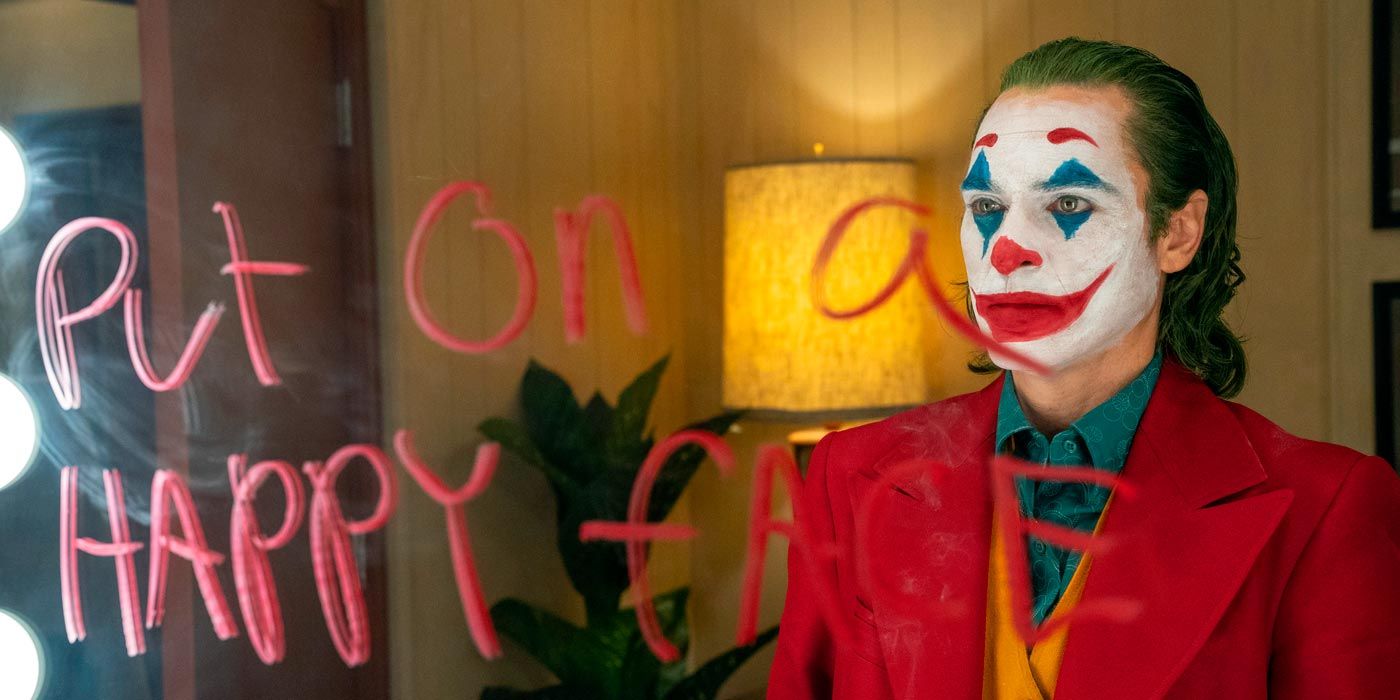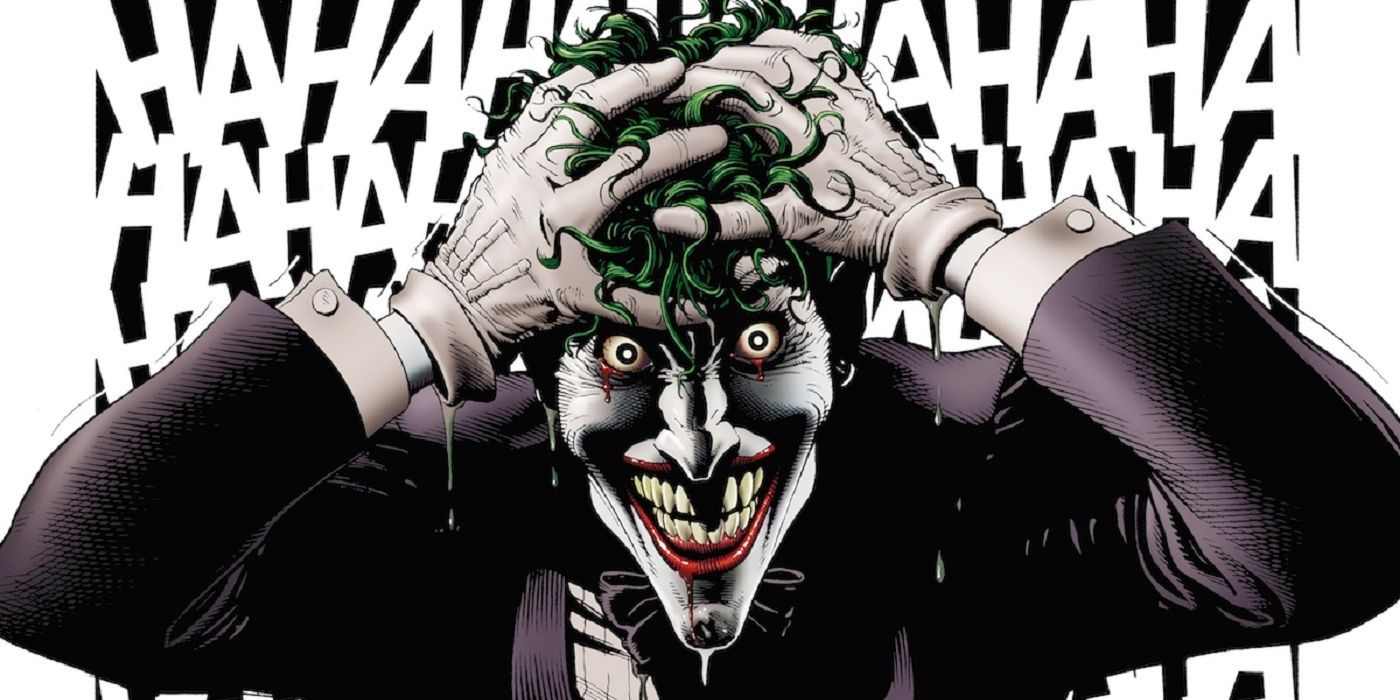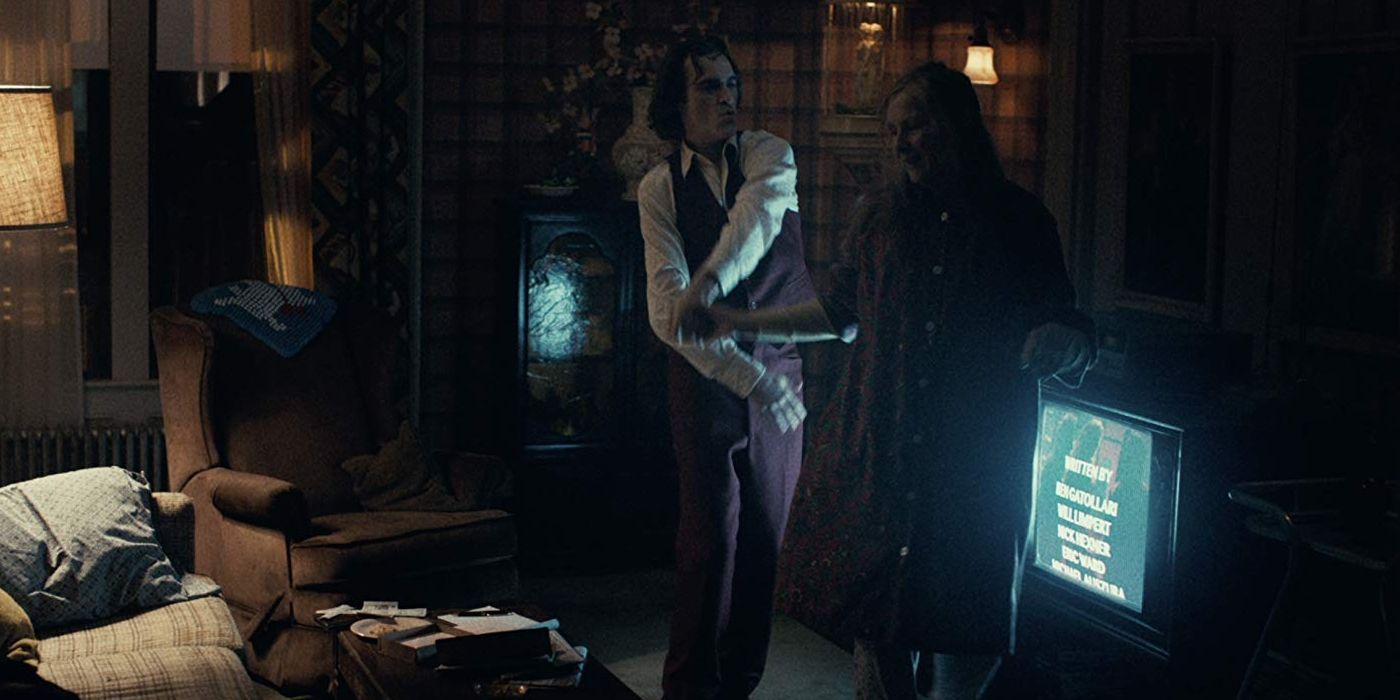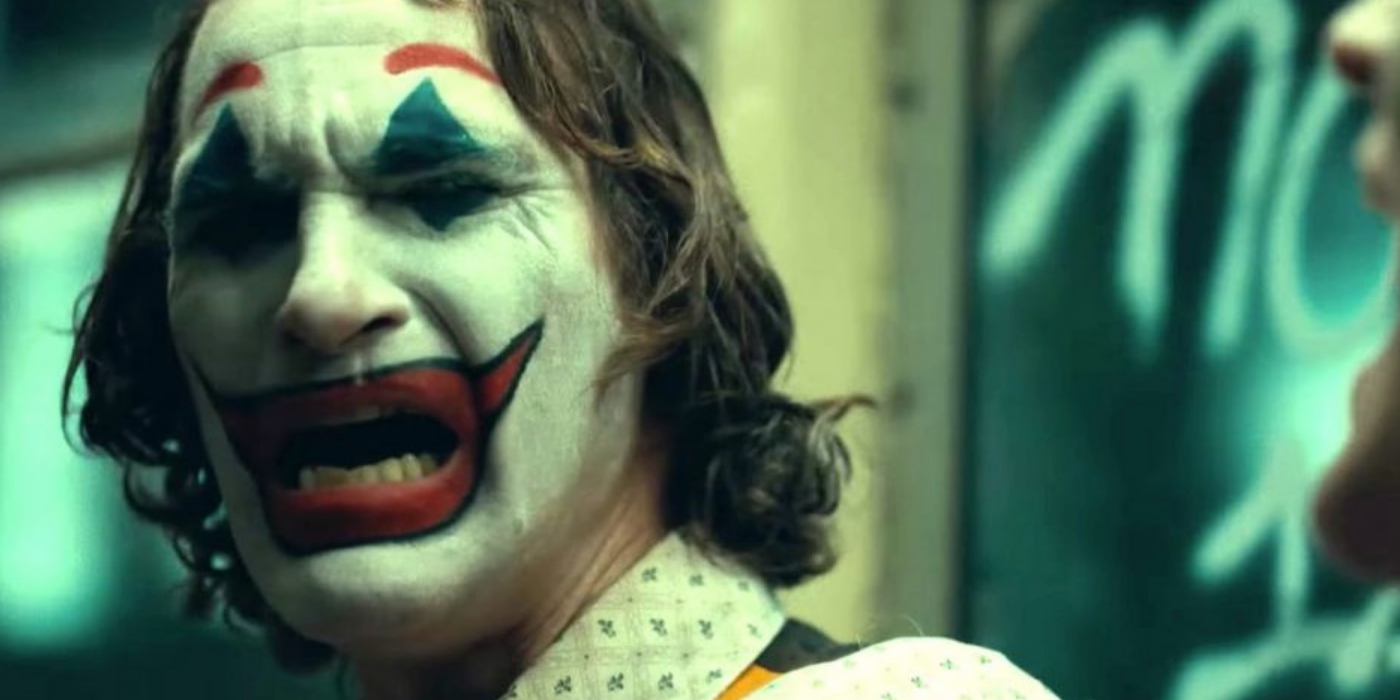WARNING: The following contains major spoilers for director Todd Phillips' Joker, in theaters now.
There is and has always been a level of mystery attached to the Joker. It's what makes him so intriguing and so powerful as a fictional character. Without knowing his name or where he really came from, he can embody the pure chaos that Batman has always struggled to defeat. That being said, for several decades now, there has been one widely accepted origin story for Joker, told in Batman: The Killing Joke (written by Alan Moore, illustrated by Brian Bolland) in 1988. While it's widely accepted, it's not necessarily the definitive explanation for the character's beginnings. As Joker says in Moore's graphic novel, "If I'm going to have a past, I prefer it to be multiple choice."
Todd Phillips' Joker attempts to explore another possible journey through which a person might turn into a maniac like the Clown Prince of Crime. The story of Arthur Fleck is wholly unique and every bit as dark as the comic book character it loosely adapts. Does it suit the legacy of the Joker better than Moore's tale?
Originally, it was a vat of chemicals that created the Joker. Detective Comics #168 (written by Bill Finger, artwork by Lew Sayre Schwartz, Win Mortimer and George Roussos) revealed that Joker, back then known as Red Hood, fell into that vat when Batman arrived to stop him during an attempted robbery. The chemicals inside dyed his hair white and bleached his skin. Alan Moore kept the vat of chemicals but expanded on the villain's backstory with a pregnant wife, a failed career in comedy and a couple of mobsters.
In the one-shot graphic novel, the nameless comedian who would become the Joker starts out as a likeable guy, someone that readers could understand. He wasn't shown to be evil in any way, just down on his luck and desperate. He'd clearly tried to pursue his dream of becoming a comedian, only to hit the cold realities of that chase. He had a pregnant wife to take care of and needed money to do it. The pressure was already building, all he needed to turn from an average person to a psychotic villain was one bad day -- he lost his wife, was pressured into a failed robbery attempt and fell into a vat of chemicals. Upon seeing his new face, he presumably came to see the world as one sick joke and decided to, in his own way, embrace it. Thus, the Joker was born.
Joker takes a different approach. Arthur Fleck begins as a regular person, for the most part. He suffers from a neurological condition but tries to find and spread happiness. Once again, we see a man struggling to make it as a comedian and constantly getting pushed down by a cynical and unforgiving Gotham City. Arthur only starts to feel powerful after firing a revolver for the first time; the only kind of power he might have ever wielded.
Without any real support from the people around him, he breaks and falls to his deteriorating mental state. As if that wasn't enough, reality itself seems to unravel for him. We see Arthur's world come crashing down at the end of the second act when it's revealed that, not only is Thomas Wayne not his father, but Penny Fleck is not his mother. The only real friend and family Arthur ever had lied to him about his roots and suffering. In Arthur's eyes, regardless of whether or not she too had suffered from delusions, this was an unforgivable betrayal.
With nothing left in his world to feel attached to, Arthur develops a somewhat nihilistic attitude and essentially begins to vent his rage on the world around him. Strangely, we see that Arthur's willingness to act has attracted angry Gothamites, who cheer for Joker and give him the attention and adoration he has been craving.
Joker and The Killing Joke are two very different stories, but when it comes to the Joker, they both succeed in turning a seemingly harmless man into a crazed supervillain. Where they differ is that the graphic novel simply hints at Joker's path to insanity while Todd Phillips' film illustrates his slow descent into madness. So the question remains, does Joker's slow transformation suit the character more than the relatively sudden change featured in The Killing Joke?
Even if readers can understand how one bad day might forever warp a person, there are advantages to providing audiences with a more gradual change, especially when it comes to someone as complex as the Joker. Alan Moore said it himself of The Killing Joke, "Batman and the Joker are not like any human beings that have ever lived. So there's no important human information being imparted."
Joker, however, attempts to ground the titular villain in as much reality as possible -- throwing him into the hardships of social inequality, complex familial responsibility and, at the same time, confining him to being an outsider -- so that even when audiences no longer connect with Arthur and the violent actions he commits, they understand the emotions behind those actions. In that way, they might be able to ascertain one message or another from the film about the instability of the human condition.
A lot of the time in both the comics and various adaptations, Joker isn't really much of a character at all. In the grand scheme of things, he is a symbolic enemy of peace and order, largely created by an unjust social system combined with the flaws and fragility of the human condition. Joker embraces that in the last moments of the film, when Arthur, now wholly transformed, becomes a symbolic figure to the rioters of Gotham.
Without undermining the unique characteristics of the comic book character, the film provides audiences with a slightly more reasonable explanation for how such a deeply twisted individual might form and gain such a large following, more so than The Killing Joke ever could. Of course, this is simply one way of interpreting a character that has been redefined time and time again throughout popular culture. Ultimately, Joker is as great a choice for his past as any.
Directed by Todd Phillips, Joker stars Joaquin Phoenix, Robert De Niro, Zazie Beetz, Bill Camp, Frances Conroy, Brett Cullen, Glenn Fleshler, Douglas Hodge, Marc Maron, Josh Pais and Shea Whigham. In theaters now.




